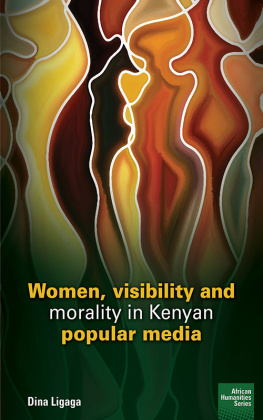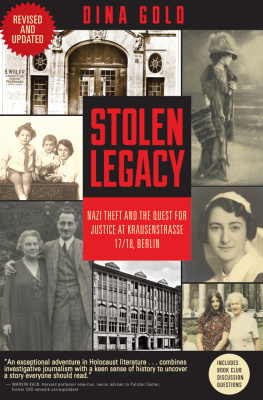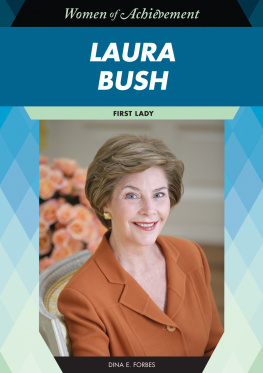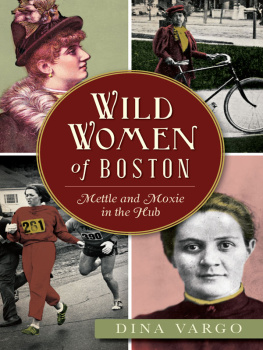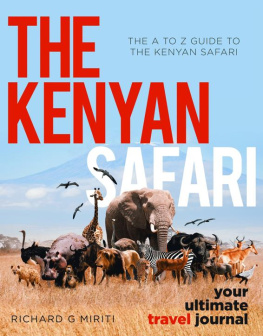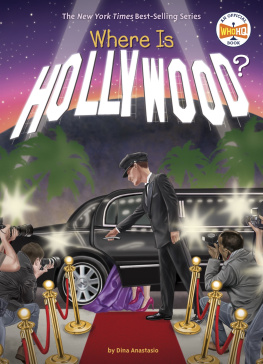WOMEN, VISIBILITY AND MORALITY IN KENYAN POPULAR MEDIA
DINA LIGAGA
Published in South Africa on behalf of the African Humanities Program
by NISC (Pty) Ltd, PO Box 377, Grahamstown, 6140, South Africa
www.nisc.co.za
First edition, first impression 2020
Publication African Humanities Program 2020
Text Dina Ligaga 2020
All rights reserved. No part of this publication may be reproduced or transmitted in any form or by any means, electronic or mechanical, including photocopying, recording, or any information storage or retrieval system, without prior permission in writing from the publisher.
ISBN: 978-1-920033-63-7 (print)
ISBN: 978-1-920033-64-4 (PDF)
ISBN: 978-1-920033-65-1 (ePub)
Manuscript mentor: Prof. Lynette Steenveld
Project manager: Peter Lague
Indexer: Sanet le Roux
Cover design: Advanced Design Group
Cover photographs:
agsandrew / Shutterstock (front),
Flamingo Images / stock.adobe.com (back)
e-book conversion: Wouter Reinders
Printed in South Africa by Digital Action
The author and the publisher have made every effort to obtain permission for and acknowledge the use of copyright material. Should an inadvertent infringement of copyright have occurred, please contact the publisher and we will rectify omissions or errors in any subsequent reprint or edition.
Dedication
To Dan, Naledi, Akelo and Manu
To my parents, Emmanuel Omondi Ligaga and Alice Obiero Ligaga
and to Hilda Croxford, with love and appreciation
About the Series
The African Humanities Series is a partnership between the African Humanities Program (AHP) of the American Council of Learned Societies and academic publishers NISC (Pty) Ltd. The Series covers topics in African histories, languages, literatures, philosophies, politics and cultures. Submissions are solicited from Fellows of the AHP, which is administered by the American Council of Learned Societies and financially supported by the Carnegie Corporation of New York.
The purpose of the AHP is to encourage and enable the production of new knowledge by Africans in the five countries designated by the Carnegie Corporation: Ghana, Nigeria, South Africa, Tanzania and Uganda. AHP fellowships support one years work free from teaching and other responsibilities to allow the Fellow to complete the project proposed. Eligibility for the fellowship in the five countries is by domicile, not nationality.
Book proposals are submitted to the AHP editorial board which manages the peer review process and selects manuscripts for publication by NISC. In some cases, the AHP board will commission a manuscript mentor to undertake substantive editing and to work with the author on refining the final manuscript.
The African Humanities Series aims to publish works of the highest quality that will foreground the best research being done by emerging scholars in the five Carnegie designated countries. The rigorous selection process before the fellowship award, as well as AHP editorial vetting of manuscripts, assures attention to quality. Books in the series are intended to speak to scholars in Africa as well as in other areas of the world.
The AHP is also committed to providing a copy of each publication in the series to university libraries in Africa.
AHP Editorial Board Members as at December 2019
AHP Series Editors:
Professor Adigun Agbaje, University of Ibadan, Nigeria
Professor Emeritus Fred Hendricks, Rhodes University, South Africa
Consultant:
Professor Emeritus Sandra Barnes, University of Pennsylvania, USA (Anthropology)
Board Members:
Professor Akosua Adomako Ampofo, Institute of African Studies, Ghana (Gender Studies & Advocacy) (Vice President, African Studies Association of Africa)
Professor Kofi Anyidoho, University of Ghana, Ghana (African Studies & Literature) (Director, Codesria African Humanities Institute Program)
Professor Ibrahim Bello-Kano, Bayero University, Nigeria (Dept of English and French Studies)
Professor Sati Fwatshak, University of Jos, Nigeria (Dept of History & International Studies)
Professor Patricia Hayes, University of the Western Cape, South Africa (African History, Gender Studies and Visuality) (SARChI Chair in Visual History and Theory)
Associate Professor Wilfred Lajul, College of Humanities & Social Sciences, Makerere University, Uganda (Dept of Philosophy)
Professor Yusufu Lawi, University of Dar-es-Salaam, Tanzania (Dept of History)
Professor Bertram Mapunda, University of Dar es Salaam, Tanzania (Dept of Archaeology & Heritage Studies)
Professor Innocent Pikirayi, University of Pretoria, South Africa (Chair & Head, Dept of Anthropology & Archaeology)
Professor Josephat Rugemalira, University of Dar-es-Salaam, Tanzania (Dept of Foreign Languages & Linguistics)
Professor Idayat Bola Udegbe, University of Ibadan, Nigeria (Dept of Psychology)
Published in this series
Dominica Dipio, Gender terrains in African cinema , 2014
Ayo Adeduntan, What the forest told me: Yoruba hunter, culture and narrative performance, 2014
Sule E. Egya, Nation, power and dissidence in third-generation Nigerian poetry in English , 2014
Irikidzayi Manase, White narratives: The depiction of post-2000 land invasions in Zimbabwe , 2016
Pascah Mungwini, Indigenous Shona philosophy: Reconstructive insights , 2017
Sylvia Bruinders, Parading respectability: The cultural and moral aesthetics of the Christmas Bands Movement in the Western Cape, South Africa , 2017
Michael Andindilile, The Anglophone literary-linguistic continuum: English and indigenous languages in African literary discourse , 2018
Jeremiah Arowosegbe, Claude E Ake: The making of an organic intellectual , 2018
Romanus Aboh, Language and the construction of multiple identities in the Nigerian novel , 2018
Bernard Matolino, Consensus as democracy in Africa , 2018
Babajide Ololajulo, Unshared identity: Posthumous paternity in a contemporary Yoruba community , 2018
De-Valera NYM Botchway, Boxing is no cakewalk! Azumah Ring Professor Nelson in the social history of Ghanaian boxing , 2019
Acknowledgements
The manuscript for this publication was prepared with the support of the African Humanities Fellowship Program established by the American Council of Learned Societies (ACLS) with a generous grant from the Carnegie Corporation of New York. I am also grateful for funding from the National Research Foundation of South Africa which assisted in bringing this project to fruition.
I am indebted to the African Humanities Program (AHP) postdoctoral fellowship for the opportunities it made available to me. In 2014, I participated in the AHP Manuscript Development Workshop (MDW) held in Dar es Salaam. I would like to thank Andrzje Tymowski, International Program Director at ACLS, who has always gone above and beyond to ensure the success of the program, and for the stimulating conversations at the MDW. I would also like to thank Eszter Csicsai who was the program coordinator of the AHP at the time, as well as the AHP advisors Adigun Agbaje, Innocent Pikirayi and Steven Feireman for their constructive feedback and insight. To my co-participants, Adebayo Mosobalaje, Harrie Bazunu, Eliah S. Mwaifuge, Ifeyinwa Genevieve Okolo and Abosede Omowumi Babatundi thank you for your continued support. In 2017 I was African Studies Association (ASA) Presidential Fellow. During this period, I had the opportunity to visit Rutgers University. I would like to thank Stphane Robolin, Chika Okoye, Thato Magano and Ousseina Alidou for welcoming me. I would also like to thank Mona Mwakalinga and Uni Dyer for companionship, laughter and intellectual exchange. To the AHP book series editors, Fred Hendricks and Adigun Agbaje, thank you for your patience. I am indebted to my manuscript mentor, Lynette Steenveld, who worked tirelessly to help me turn words into a book, always with patience and grace I felt I had to finish this project as a way of saying thank you. To Barbara van der Merwe who believed in this project way before I knew it was one. I am grateful for your continued support. My thanks also to Peter Lague for your keen eye and engaging feedback during the last leg of editing the book.


